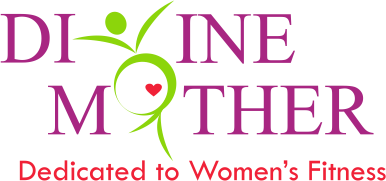
- July 28, 2021
- Comments: 0
- Posted by: Dr. Anushri Shah

You’ve been blessed with the cutest child on the planet, and you’re willing to go to any length to protect the apple of your eye. You want to keep him healthy, and to that end, you want to breast-feed him as much as possible.
Breastfeeding is the ideal way to feed your baby since it provides much more than nutrition, such as immunity-boosting antibodies. Furthermore, it is a connecting moment between mother and kid. However, there may be a number of difficulties you will confront while breastfeeding your child. Some newborn nursing issues, as well as potential treatments, are mentioned here.
What’s Breastfeeding Failure?
Breastfeeding failure denotes a condition in which the kid is unable to suck milk from the breast because the breasts are empty. If a baby continues to suck the empty breasts, he or she may become infected.
Reasons For Breastfeeding Failure!
What causes breastfeeding failures? Is there a lack of desire on the mother’s part who may find the regimen too taxing and hence prefer bottle-feeding the baby? However, there have been cases where the mother has been unable to breastfeed her kid despite taking every precaution. Breastfeeding failure is discussed in this article.
Bottle-Feeding
Bottle sucking is pretty easy, therefore if the child is given any kind of feed-in bottles, he will simply refuse to put up the effort for breastfeeding. As a result, the milk eventually dries up, resulting in breastfeeding difficulties. This is, by far, the most frequent of the causes.
Lack Of Supply
This is one of the most serious and prevalent breastfeeding issues. Low milk supply can be caused by a variety of factors, including glandular disorders or insufficient breastfeeding.
Leaking
From the third trimester until your infant stops breastfeeding, you can expect your nipples to leak often. Leakage may occur as a result of a let-down reflex, which promotes milk production in the proximity of your baby. It may also occur if your breasts have an excessive amount of milk stored in them. Please keep in mind that not all pregnant women leak breast milk.
Engorged
Immediately after giving birth, your breasts’ milk production skyrockets, leading them to grow much larger and heavier. This is called breast engorgement.
Anatomical Issues with the Baby
Your child may have anatomical flaws such as a large tongue, an arched palate, or issues with their chin, gums, or jaw. As a result, they may struggle to remain firmly latched onto your breasts.
Inverted Nipples
While most women’s nipples protrude outwards, others have flat or inverted nipples that protrude inwards. This makes a successful latch incredibly hard. Excessive milk production and engorged breasts can also cause flat nipples.
Breastfeeding Latch Error
If your infant does not learn to latch onto your breasts properly, your breasts will produce less milk, resulting in an underfed irritable baby. Furthermore, it may take some time for your infant to latch without causing any discomfort or pain.
Milk Duct Blockage
Engorged or swollen breasts can be caused by blockages in the milk ducts. This occurs when you produce a lot of milk, which promotes inflammation in the breast tissue. This, in turn, puts pressure on the milk ducts, causing a blockage.
Soreness
A throbbing ache in your nipples is a common side effect of breastfeeding. The discomfort can be exacerbated by incorrect latching. Dryness, fissures, and even bleeding can result from sore nipples.
Yeast Infections
Your baby’s mouth is full of disease-causing bacteria. The most prevalent is a yeast infection known as Thrush, which can involve flaky skin, itching, redness, soreness during nursing, rashes, and other symptoms.
Strike Against Breastfeeding
Your infant may quit breastfeeding after several months of being satisfied with your breast milk. This doesn’t necessarily imply that your kid wants to stop nursing, but it does suggest that something else is wrong. Distractions, a blocked nose, anxiety, weariness, and other factors are all prevalent reasons.
Solution
Breastfeeding can help you space your children’s births. It encourages the mother’s uterus to contract, lowering the risk of postpartum hemorrhage. Also, It has been shown to reduce the mother’s risk of breast and ovarian cancer. Breastfeeding aids in the mother’s return to her pre-pregnancy weight.
Breastfeeding sessions help to prevent allergies, illness, and obesity. It helps to prevent diseases such as diabetes and cancer. Also, It safeguards against infections such as ear infections. It is quickly digested and does not cause constipation, diarrhea, or stomach distress.
If you are having trouble and facing the above mentioned issues, no need to worry. We divine mother’s are always glad to help you with fantastic pregnancy care programs & special breastfeeding sessions.

